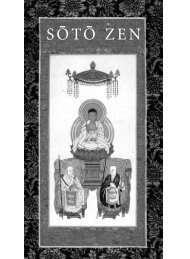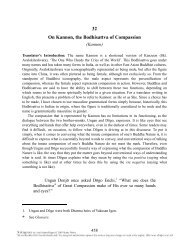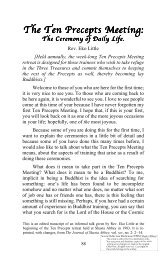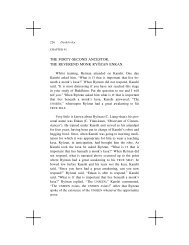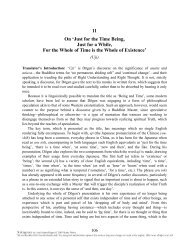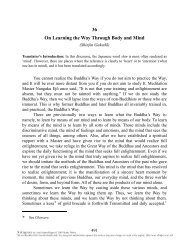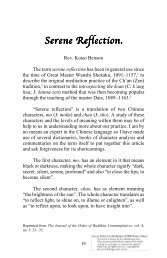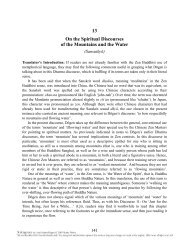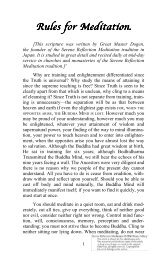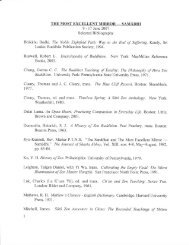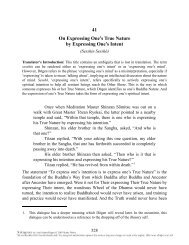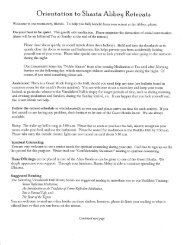Mujo Seppo - thezensite
Mujo Seppo - thezensite
Mujo Seppo - thezensite
Create successful ePaper yourself
Turn your PDF publications into a flip-book with our unique Google optimized e-Paper software.
Shōbōgenzō: On the Dharma That Nonsentient Beings Express 660<br />
expressed by the nonsentient is what the Nonsentient is. Hence, it is the Dharma<br />
that the Nonsentient expresses. It is the Nonsentient that expresses the Dharma. 6<br />
❀<br />
Our Founding Ancestor Tōzan said, “If that is the way things<br />
are, then Venerable Monk, I have not heard your expressing of the<br />
Dharma.”<br />
Here and now, his saying, “If that is the way things are…” takes up the principle<br />
underlying the statement, “When the nonsentient express the Dharma, the<br />
nonsentient can hear It.” In accord with the principle behind “When the<br />
nonsentient express the Dharma, the nonsentient can hear It” is “Then Venerable<br />
Monk, I do not hear your expressing of the Dharma.” 7 At this time, Tōzan is not<br />
only taking a back seat to the nonsentient’s expressing of the Dharma, but he was<br />
also showing his eagerness to voice the Dharma for the sake of nonsentient beings<br />
with an ardor that pierced the very heavens. Not only had he thoroughly penetrated<br />
the nonsentient’s expressing of the Dharma, but he had also thoroughly mastered,<br />
and gone beyond, ‘hearing’ versus ‘not hearing’ the nonsentient express the<br />
Dharma. And, pushing on, in the matter of the sentient giving voice to the Dharma,<br />
he had gone beyond ‘expressing’ versus ‘not expressing,’ and he had thoroughly<br />
penetrated ‘expressing by those in the past’, ‘expressing by those in the present’,<br />
and ‘expressing by those in the future’. And moreover, in expressions of the<br />
Dharma that go beyond being heard or not being heard, he had completely clarified<br />
the principle of ‘this is sentient’ and ‘this is nonsentient’.<br />
To generalize, hearing the Dharma is not limited merely to the sphere of the<br />
ear as a sense organ or to someone’s being conscious of sounds. We hear the<br />
Dharma with our whole vitality, with our whole mind, with our whole body, with<br />
our whole being. We hear It from ‘before the time when “father” and “mother”<br />
were born’ * and from before the time of the Lords of Awe-inspiring Voices until<br />
the limits of our future and throughout the limitless future. The Dharma is heard<br />
before the body and after the mind. There is much to be gained from these<br />
instances of hearing the Dharma, so do not think that unless our mental<br />
6. That is, when the word ‘nonsentient’ is capitalized, it refers to Buddha Nature Itself.<br />
7. This statement was Tōzan’s way of asserting that his True Self has not become enlightened<br />
because he recognized that this True Self (the ‘I’ here) is already enlightened and has always<br />
been so. At the same time, it is an expression of Tōzan’s humility and his assertion that his<br />
Master’s expression of the Dharma is within the realm of ‘the saintly’.



